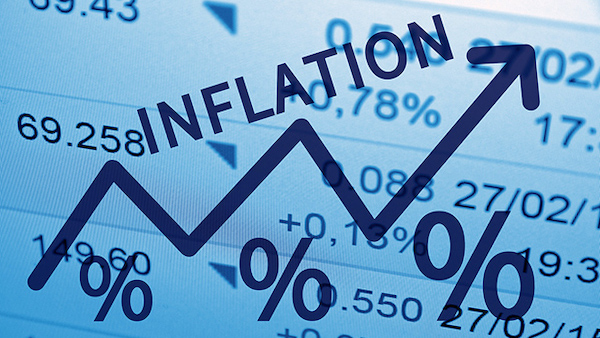Business
Nigeria’s inflation rate falls for 7th straight month to 15.9%

Nigeria’s inflation rate fell for the seventh consecutive month in October to 15.99 percent, the lowest since December 2020.
The National Bureau of Statistics disclosed this in its latest Consumer Price report published on its website on Monday.
According to the bureau, the 15.99 percent rise in prices of goods and services recorded in October was 0.17 percent lower than 16.63 percent posted in September but 1.76 percent points higher than the 14.23 percent recorded in October 2020.
It is important to note that the drop in inflation figure in October did not suggest the price of goods and services is becoming cheaper but that it is increasing at a slower pace
NBS also stated that the composite food index inflation figure rose by 18.34 percent in October when compared to 17.38 percent recorded in October 2020.
The changes in the food index was caused by increases in prices of food products such as coffee, tea, cocoa, milk, cheese, eggs, bread, cereals, vegetables, potatoes, yam, and other tubers.
READ ALSO: NBS discloses plans to conduct agricultural census
NBS added that on a month-on-month basis, the food sub-index increased by 0.91 percent in October, down by 0.35 percent points from 1.26 percent recorded in September.
It said: “The average annual rate of change of the food sub-index for the 12 months ending October 2021 over the previous 12 months average was 20.75 percent, 0.04 percent points from the average annual rate of change recorded in September 2021 (20.71) percent.”
Food Inflation by states
NBS report showed that in October, food inflation on a year-on-year basis was highest in Kogi (23.69 percent), Gombe (23.29 percent), and Jigawa (21.91 percent), while Edo (13.16 percent), Rivers (14.46 percent), and Adamawa (15.42 percent) recorded the slowest rise in year-on-year food inflation.
On a month-on-month basis, however, in October food inflation was highest in Kebbi (2.29 percent), Yobe (2.23 percent), and Akwa Ibom (2.16 percent), while Kano, Kogi, Osun, and Oyo recorded negative inflation.
Join the conversation
Support Ripples Nigeria, hold up solutions journalism
Balanced, fearless journalism driven by data comes at huge financial costs.
As a media platform, we hold leadership accountable and will not trade the right to press freedom and free speech for a piece of cake.
If you like what we do, and are ready to uphold solutions journalism, kindly donate to the Ripples Nigeria cause.
Your support would help to ensure that citizens and institutions continue to have free access to credible and reliable information for societal development.






















